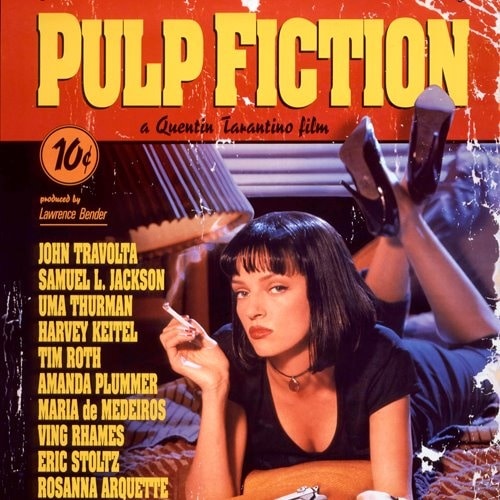Quentin Tarantino has auctioned off the NFTs from his famous film Pulp Fiction, but Miramax, the film’s production company, is ready to sue him.
The news opens up unexplored legislative horizons: the ownership of the assets put up for sale in the form of non-fungible tokens.
Pulp Fiction NFTs: Quentin Tarantino’s collection
It all began when the famous filmmaker announced his intention to auction seven never-before-seen scenes from the 1994 cult film Pulp Fiction on OpenSea, which brought Uma Thurman to fame and gave John Travolta a new life (artistically, of course).
The content of the NFTs (made in collaboration with SCRT Labs and Secret Network) is quite unique, and it is no coincidence that they are called Secret NFTs. Those who buy them will have access to deleted scenes and secrets from the film, told by the director himself, which will open up new interpretations of the film.
However, in order to access the auction, it is necessary to make a sort of pre-registration through the official website.
The director had declared:
“I’m excited to be presenting these exclusive scenes from PULP FICTION to fans. Secret Network and Secret NFTs provide a whole new world of connecting fans and artists and I’m thrilled to be a part of that”.
Needless to say, fans of Quentin Tarantino and Pulp Fiction were ecstatic.
After all, Pulp Fiction made history. It grossed over 200 million dollars at the box office, was critically acclaimed, won the Palme d’Or at the Cannes Film Festival, was nominated for seven Oscars and won the Oscar for best screenplay.
Yesterday, however, the cold shower arrived: Miramax intends to sue Quentin Tarantino for copyright infringement.

Miramax vs Tarantino
According to Variety, Quentin Tarantino did not involve the Miramax production company, which claims to own the rights to the film.
In a press release, the company, through attorney Bart Williams, said:
“This group chose to recklessly, greedily, and intentionally disregard the agreement that Quentin signed instead of following the clear legal and ethical approach of simply communicating with Miramax about his proposed ideas. This one-off effort devalues the NFT rights to ‘Pulp Fiction,’ which Miramax intends to maximize through a strategic, comprehensive approach”.
And further:
“It was profoundly disappointing to learn of this deliberate, premeditated, short-term money grab by the Tarantino team to unilaterally circumvent Miramax’s rights to Pulp Fiction through the illicit development, promotion, and distribution of NFTs. Miramax will defend all of its rights in regard to its library, including rights relating to NFTs”.
From the Tarantino NFTs Twitter account, the team behind the project responded thus:
“NFTs are meant to empower creators, connecting them directly with their audiences and communities. Secret NFTs on @SecretNetwork take this potential a step further. Now some in the media world want to take a massive step back. We stand with creators”.
The legal issues
The world of NFTs is a sector that is still too new for there to be any benchmark case law. Certainly, there is no lack of precedent.
A similar episode happened to rapper Jay Z. In that case, it was former partner Damon Dash who turned the singer’s first album, Reasonable Doubt, into an NFT format to mark 25 years since its release. This infuriated the record company, which claimed Dash had no rights.
The question is, who can copyright NFTs? Who created them or who had the rights to the original material which was then turned into NFT? And how does this concept evolve once the transaction has taken place?
There is still a lot of work to be done on the legal aspects of NFTs. This will be done by case law on a case-by-case basis, pending regulation of the whole sector.
The post Pulp Fiction NFTs, Miramax sues Quentin Tarantino appeared first on The Cryptonomist.






















